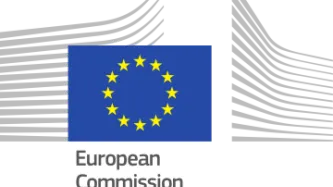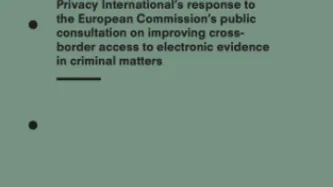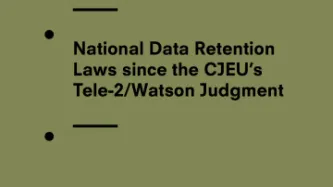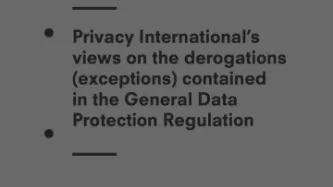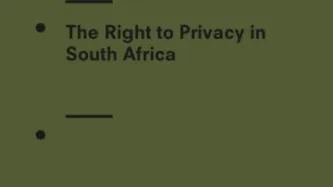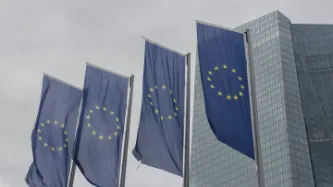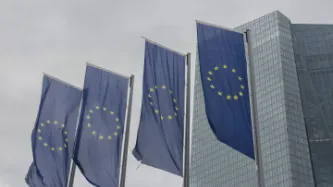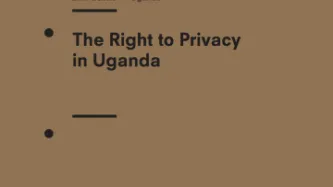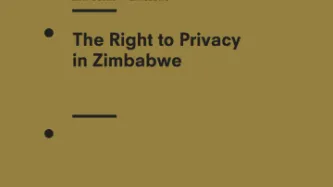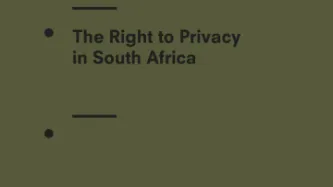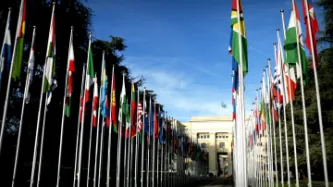Search
Content type: Advocacy
Thornsec is a piece of software developed by Privacy International’s Tech Team which is an automated way to deploy, test, and audit internal and external services for an organisation, saving a lot of time and creating a sustainable security model. We are using this software to run all of Privacy International’s services – website, calendar, project management tools, Tor hidden services, VPNs. The whole system runs on two servers and the whole cost is around US$1000 to set up.
Thornsec is…
Content type: Advocacy
Privacy International has responded to the European Commission’s consultation on the interoperability of EU information systems for borders and security.
The Commission is currently looking at ways in which various border control and policing EU databases and IT systems can be connected to share and exchange more data.
The plans raise a number of concerns as highlighted by Privacy International in our response. These relate to significant potential harms associated with…
Content type: Press release
The European Court of Human Rights will hear a landmark case on surveillance tomorrow (7 November) as part of a challenge to the lawfulness of the UK’s surveillance laws and its intelligence agencies’ mass surveillance practices.
See the attached briefing for case background and historical information.
The case, described by campaigners as a “watershed moment for people’s privacy and freedom of expression across the world”, is being brought by Amnesty International, Liberty, Privacy…
Content type: Advocacy
On 23 October 2017, Privacy International contributed to the public consultation of the European Commission on improving cross border access to electronic evidence for criminal investigation. The consultation raises important questions, particularly in relation to preserving human rights protection and safeguards as national police forces seek digital evidence in other jurisdictions.
The EU is not the only inter-governmental organisation seeking to address the complex jurisdictional…
Content type: News & Analysis
We found this image here.
On 11 October, the LIBE Committee of the European Parliament votes on the draft e-privacy regulation. As the landscape of generation, collection, and other processing of data in the digital sphere evolves, the proposal seeks to update the rules on confidentiality and security of electronic communications and online activities.
Unsurprisingly, companies whose business models rely on tracking individuals online have been busy lobbying against the new regulation. The…
Content type: Press release
Key points
Privacy International surveyed 21 EU member states' legislation on data retention and examined their compliance with fundamental human rights standards
0 out of the 21 States examined by PI are currently in compliance with these standards (as interpreted in two landmark judgements by the Court of Justice of the European Union: Tele-2/Watson and Digital Rights Ireland)
Privacy International is calling for:
EU member states to review their legislation on data retention…
Content type: Advocacy
This report sheds light on the current state of affairs in data retention regulation across the EU post the Tele-2/Watson judgment. Privacy International has consulted with digital rights NGOs and industry from across the European Union to survey 21 national jurisdictions (Austria, Belgium, Bulgaria, Croatia, Cyprus, Czech Republic, France, Germany, Hungary, Ireland, Italy, Luxembourg, the Netherlands, Poland, Portugal, Romania, Slovakia, Slovenia, Spain, Sweden, and the United…
Content type: Press release
Please find attached a copy of the briefing along with promotional photographs with the briefing.
Privacy International has today sent top EU and UK Brexit negotiators* a briefing on their vulnerability to potential surveillance by each other, and others. Brexit negotiations are to begin today.
The global privacy rights NGO has highlighted to the negotiators the risk of sophisticated surveillance capabilities being deployed against each other and by others, and provided…
Content type: Advocacy
Earlier this month, it was reported that UK-based data analytics firm Cambridge Analytica had been quietly contracted by President Uhuru Kenyatta’s party in a bid to win a second term in office. Privacy International has written to Cambridge Analytica to learn more about how the company assessed the risk of its work in Kenya and how it will ensure that Kenyans’ personal data will be protected.
Content type: Advocacy
Privacy International welcomes the willingness of the UK government to implement the EU General Data Protection Regulation (GDPR), which provides stronger standards of protection of personal data to those contained in the EU Directive 1995, whose provisions were implemented in the Data Protection Act 1998. Improved rights and enforcement measures will generate greater trust and therefore greater engagement in the digital environment, which will in turn benefit the economy. …
Content type: Report
This investigation focuses on the techniques, tools and culture of Kenyan police and intelligence agencies’ communications surveillance practices. It focuses primarily on the use of surveillance for counterterrorism operations. It contrasts the fiction and reality of how communications content and data is intercepted and how communications data is fed into the cycle of arrests, torture and disappearances.
Communications surveillance is being carried out by Kenyan state actors, essentially…
Content type: Advocacy
This stakeholder report is a submission by Privacy International (PI) and the Right2Know Campaign (R2K). This report has been prepared with the assistance and research done by the Media Policy and Democracy Project. PI is a human rights organisation that works to advance and promote the right to privacy and fight surveillance around the world. R2K is a broad- based, grassroots campaign formed to champion and defend information rights and promote the free flow of information in South Africa…
Content type: Press release
PI Research Officer Edin Omanovic said:
“The European Commission has proposed sweeping updates [PDF] to trade regulations in an effort to modernise the EU’s export control system and to ensure that the trade in surveillance technology does not facilitate human rights abuses or internal repression.
Privacy International welcomes the intentions of the proposed changes in terms of protecting human rights as it does all such moves. More than half of the world’s surveillance…
Content type: Press release
Today, Privacy International, together with five internet and communications providers from around the world, have lodged an application before the European Court of Human Rights to challenge the British Government's use of bulk hacking abroad. Until we brought our original case at the Investigatory Powers Tribunal (IPT) in 2014, the Government had never admitted that it engaged in hacking. Now we are learning for the first time how far-reaching the Government's global hacking capabilities are…
Content type: Advocacy
After the adoption of the EU General Data Protection Regulation, the Data Protection Directive for Law Enforcement Agencies, the EU-US Privacy Shield, your understandable EU privacy policy fatigue is excused.
But when a coalition of tech and telecom industries calls for a relatively obscure EU directive to be repealed, it may unintentionally trigger an atypical Streisand effect: if companies, which often so cavalier to individuals’ privacy, want to get rid of the EU e-privacy…
Content type: News & Analysis
After the adoption of the EU General Data Protection Regulation, the Data Protection Directive for Law Enforcement Agencies, the EU-US Privacy Shield, your understandable EU privacy policy fatigue is excused.
But when a coalition of tech and telecom industries calls for a relatively obscure EU directive to be repealed, it may unintentionally trigger an atypical Streisand effect: if companies, which often so cavalier to individuals’ privacy, want to get rid of the EU e-privacy…
Content type: Advocacy
This stakeholder report is a submission by Privacy International (PI). PI is a human rights organisation that works to advance and promote the right to privacy and fight surveillance around the world. PI wishes to bring concerns about the protection and promotion of the right to privacy in Namibia before the Human Rights Council for consideration in Namibia's upcoming Universal Periodic Review.
Content type: News & Analysis
This guest piece was written by Jane Duncan of the Right2Know Campaign. It does not necessarily reflect the views or position of Privacy International.
On 23rd March the United Nations Human Rights Committee released its assessment on South Africa’s compliance with the International Covenant on Civil and Political Rights (ICCPR). The report includes a blistering attack on the Government for failing to respect the privacy of the communications of users and makes…
Content type: Advocacy
This stakeholder report is a submission by Privacy International (PI), Unwanted Witness Uganda, the Collaboration on International ICT Policy for East and Southern Africa (CIPESA) and the East and Horn of Africa Human Rights Defenders Project (EHAHRDP).
Content type: Advocacy
This Universal Periodic Review (UPR) stakeholder report is a submission by Privacy International (PI), the International Human Rights Clinic at Harvard Law School (IHRC), the Zimbabwe Human Rights NGO Forum(the Forum), and the Digital Society of Zimbabwe (DSZ).
Content type: Press release
The committee of data protection regulators across Europe, the Working Party 29, announced today its opinion on the current “Privacy Shield”. The Opinion is expected shortly, and based on the statements made by the Working Party chair in a press conference, we understand that the Working Party, while noting improvements from the annulled “Safe Harbor” agreement, has serious concerns about a range of aspects of the current "Privacy Shield" agreement with the U.S.
Overall they note the…
Content type: News & Analysis
Should the European Union agree to legitimise trade with a country that refuses to adhere to European legal standards? This is the fundamental question that will be addressed at tomorrow’s meeting among European privacy regulators when they publish their opinion on the data-sharing agreement known as the ‘Privacy Shield’, the replacement to the failed ‘Safe Harbour’ agreement.
Background
Many of the world’s largest companies, such as Google and Facebook, store their customers’ data in…
Content type: News & Analysis
PI's full analysis can be read here
On 29 February 2016, the European Commission and the US government released the details of the proposed EU-U.S. “Privacy Shield”. The “Privacy Shield” replaces the now defunct so-called “Safe Harbor”.
The Privacy Shield is in fact a significant number of documents from various parts of the U.S. administration, which merely outline the existing, weak U.S. safeguards applicable to personal data of EU citizens. These documents are…
Content type: Advocacy
Introduction
On 29 February 2016, the European Commission and the US government released the details of the proposed EU-U.S. “Privacy Shield”. The “Privacy Shield” replaces the now defunct so-called “Safe Harbor”.
The Privacy Shield is in fact a significant number of documents from various parts of the U.S. administration, which merely outline the existing, weak U.S. safeguards applicable to personal data of EU citizens. These documents are meant to serve as the basis for an “adequacy”…
Content type: Long Read
“This is my personal opinion,” concedes Branko, a taxi driver in Skopje, the Republic of Macedonia's capital. “It was done by America to stop Putin building his gas pipe line through Macedonia.”
“This is just politics,” he advises, skeptically.
It's a common reaction to the wiretapping scandal in Macedonia. Beginning in February last year when opposition leader Zoran Zaev posted a series of wiretaps online that he called 'bombs' – they seemingly showed that for years the phone calls of some…
Content type: Advocacy
Privacy International, Right2Know, and the Association for Progressive Communications (hereinafter “the organisations”) note the written replies by the government of South Africa to the list of issues on South Africa’s laws, policies and practices related to interception of personal communications and protection of personal data.
The organisations have on-going concerns on the practices of surveillance by South African intelligence and law enforcement agencies. In this submission, the…
Content type: News & Analysis
In 2015 the United Nations' human rights mechanisms significantly increased their capacity to monitor and assess states' compliance with their obligations around the right to privacy. Notably, the Human Rights Council established the mandate of the Special Rapporteur on the right to privacy, filling a significant gap in the international human rights protection system. Meanwhile, the Human Rights Committee put surveillance laws and practices in a range of countries under close scrutiny, making…
Content type: News & Analysis
The major overhaul of data protection laws in Europe is finally over, after three years of arduous and sustained political and lobbying activity by all those with a major stake and interest, including us at Privacy International (See our initial analysis of the two laws in 2012). We welcome this long overdue closure, but is this 91-articled, 200-paged piece of legislation been worth the enormous effort and no doubt millions of euros, dollars and pounds spent on it?
The legislative package…
Content type: Press release
Statement by European Digital Rights (EDRi), Bits of Freedom, Digitale Gesellschaft e.V, Digital Rights Ireland and Privacy International following the vote of the European Parliament’s Civil Liberties Committee on the Data Protection
In January 2012, the European Commission, following extensive consultations, published a draft Regulation and a Directive to create a strong framework for data protection in the EU. The initiative had three priorities – modernisation of the legal framework for…
Content type: News & Analysis
Sometimes it takes an unexpected stranger to remind you what you have, and what you are at risk of losing. Roman Zakharov, a Russian publisher who challenged Russia’s surveillance legislation, is that stranger for many Brits and Europeans. The Grand Chamber of the European Court of Human Rights judgement on Friday 4 December 2015 was remarkable, not because it tore up the rule book on the jurisprudence surrounding state surveillance in the Council of Europe, but because it followed…

